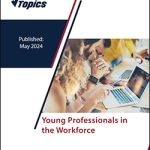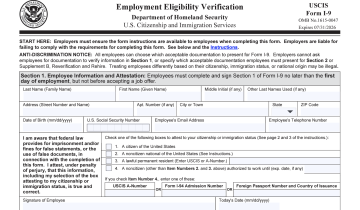Evaluating the Recent Presidential Actions
On September 19, 2025, the White House published a proclamation by President Donald Trump that proposes to limit the H-1B nonimmigrant visa program. The following article breaks down the proclamation and its potential impact on U.S. employers.
Overview of H-1B Work Authorizations
The H-1B visa program allows U.S. employers to hire foreign workers in specialty occupations that require high levels of expertise (e.g., certain technology occupations), fashion models of distinguished merit and ability, and workers performing services of exceptional merit and ability relating to a Department of Defense (also known again by its secondary title, the Department of War) cooperative research and development project. While the program is intended to fill gaps in the U.S. workforce, it has become a topic of debate regarding its impact on U.S. workers, especially new college graduates seeking entry-level positions that require post-secondary education.
H-1B Impact on U.S. Jobs
For U.S. citizens, including recent college graduates, the H-1B program can present both opportunities and challenges. On one hand, the influx of skilled foreign workers can foster innovation and competitiveness, which may lead to overall economic growth and the creation of new jobs. On the other hand, critics argue that the program can make it more difficult for U.S. citizens to secure jobs in certain industries, as employers may favor H-1B workers who can sometimes be paid lower wages. As a result, critics may also argue that H-1Bs result in wage depression.
President Donald Trump’s Proclamation
In response to ongoing concerns about the labor market, President Donald Trump issued a proclamation temporarily suspending the entry of certain foreign workers, including those seeking H-1B visas. The stated aim of this action is to prioritize job opportunities for American workers, particularly new college graduates who are entering a challenging job market.
Supporters of the proclamation might argue that this measure will help ensure that U.S. citizen college graduates have a better chance at securing employment, reducing competition from foreign workers in the short term. Critics, however, might contend that the suspension could have negative effects on U.S. businesses that rely on global talent, potentially slowing innovation and economic recovery.
"This Proclamation:
- Requires a $100,000 payment to accompany any new H-1B visa petitions submitted after 12:01 a.m. eastern daylight time on Sept. 21, 2025. This includes the 2026 lottery, and any other H-1B petitions submitted after 12:01 a.m. eastern daylight time on Sept. 21, 2025.
- Authorizes the Department of Homeland Security and the Department of State to coordinate to take all necessary and appropriate action to implement this Proclamation.
- U.S. Citizenship and Immigration Services has so far taken such action by issuing guidance regarding the Proclamation, available here.
- U.S. Customs and Border Protection has also issued guidance, available here.
- The Department of State has posted guidance to all consular offices, consistent with the guidance from U.S. Citizenship and Immigration Services and U.S. Customs and Border Protection guidance.
This Proclamation does not:
- Apply to any previously issued H-1B visas, or any petitions submitted prior to 12:01 a.m. eastern daylight time on Sept. 21, 2025.
- Does not change any payments or fees required to be submitted in connection with any H-1B renewals. The fee is a one-time fee on submission of a new H-1B petition.
- Does not prevent any holder of a current H-1B visa from traveling in and out of the United States."
The proclamation is temporary, unless renewed, and is set to expire on September 21, 2026.
Project Firewall
On the same day of the proclamation, the U.S. Department of Labor (DOL) announced “Project Firewall,” an initiative to oversee H-1B compliance.
Conclusion
The H-1B program has a complex impact on new U.S. college graduates, balancing the need for specialized skills with concerns about domestic job opportunities. President Trump’s recent proclamation seeks to address these concerns by limiting foreign competition, at least temporarily, in hopes of supporting American workers during a period of economic uncertainty. The effectiveness of this approach remains to be seen, as policymakers continue to debate the best ways to foster both opportunity and innovation in the U.S. labor market.
Helpful Resources:
The White House—Presidential Actions—Restriction on Entry of Certain Nonimmigrant Workers
U.S. Citizenship and Immigration Services—H-1B FAQ
US Department of Labor Launches Project Firewall to Protect America’s Highly Skilled Workforce
U.S. Citizenship and Immigration Services—H-1B Specialty Occupations
Sources: The White House and U.S. Citizenship and Immigration Services






